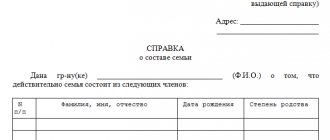A will is a kind of one-sided transaction, the condition of execution of which is the death (recognition as deceased) of the person who owns the inheritance and wishes to distribute it among his heirs.
But it is precisely the deferred execution of the transaction that opens questions about the validity period of the testamentary document and the acceptance of inheritance under it.
- Requirements for a will
- Duration of the will
- Validity period of a will for inheritance
- Consequences of missing the deadline for accepting an inheritance
- Restoring the deadline
- In what cases is it not necessary to restore the deadline for accepting an inheritance?
- Time limits for refusal to inherit under a will
- Statute of limitations for a will
How long is a will valid during the life of the testator?
A will is a document containing the owner's instructions for the distribution of property in the event of his death. Its validity period during the life of the testator varies depending on the type of document:
- An ordinary will, certified by a notary, and a testamentary disposition. Their validity period is not limited. But the owner himself has the right to rewrite them in whole or in part, as well as completely cancel them at any time. But you can change your will only by drawing up a new will or testamentary disposition, and cancel it with the help of an order certified by a notary or a bank.
- A will certified by a person authorized as a notary. In accordance with Art. 1127 of the Civil Code of the Russian Federation, the captain of a ship, the commander of a military unit, the head of an institution of the Federal Penitentiary Service, the chief physician, and the head of an expedition have the right to certify the will of a citizen. The document must soon be transferred to the notary at the place of residence of the testator. In this situation, the will is considered valid, even if the authorized person did not have time to transfer the will to the notary before the death of the owner.
- A will made in an emergency. Art. 1129 of the Civil Code of the Russian Federation provides for the possibility of urgently drawing up a will if a citizen assumes that his life and health are in danger. For example, when martial law is declared or in an emergency. The authenticity of the document is certified by 2 adult witnesses. The document is valid during the life of the testator for 30 days after the dangerous circumstances have ceased. If within 30 months after this the citizen does not contact a notary to certify the document, it loses its validity.
Take the survey and a lawyer will share an inheritance action plan in your case for free
You might find it useful:
State duty calculator for inheritance
Samples of inheritance documents
Consultation with a lawyer on inheritance
Basic requirements for a will
There are certain requirements for the execution of a testamentary document. The rules for its preparation are reflected in Art. 1124, 1125 Civil Code of the Russian Federation. It also provides the procedure for challenging the case and the statute of limitations. The validity period of the will itself is not specified, which allows it to be considered indefinite.
Compliance with the requirements for the form and content of the document is a prerequisite for recognizing it as valid. Therefore, when making a will, it is better to seek help from a professional lawyer.
Key aspects to cover:
- A complete list of heirs indicating the names and degree of relationship, full name, place of residence and registration.
- Information about the testator: his full name, date of birth, passport registration and actual place of residence.
- A list of all property that is inherited. If the testator does not indicate what property will be allocated to each of the heirs, it is by default subject to division into equal shares.
- Current date and signature of the testator.
- Notarization in the form of signature and seal.
- In a closed will, when the notary does not know about its contents, the signatures of witnesses are placed on the envelope. The notary places it in another envelope, on which he indicates the place and date of acceptance of the document, information about witnesses.
A mandatory requirement is the presence of a notary's signature indicating the authenticity of the document, since without it the will has no legal force. However, there are exceptions to this rule, specified in Art. 1125 (clause 7), art. 1127 (clause 2), art. 1128, Art. 1129 of the Civil Code of the Russian Federation. An official of local government bodies or the consulate of the Russian Federation can perform notarial acts if this is confirmed by law. Also, wills that have the signature of the following persons are considered notarized: the chief or duty doctor in the hospital; the head of a home for the disabled or a nursing home; captain of the ship; expedition leader; head of a military unit; the head of the place of deprivation of liberty; bank employee, if the testator disposes of the cash deposit. In this case, the presence of the testator and a witness is necessary, who also sign the document. In extreme circumstances, the will can be signed in person in the presence of 2 witnesses.
It is not necessary for any of the relatives to know about the existence of a will and its contents. All persons who took part in its preparation and signing do not have the right to disclose information regarding the document.
Duration of validity of a will after the death of the testator (testator)
After the death of the owner, the will drawn up by the latter becomes valid. But if the previous document included information about other property, then the inheritance will occur under 2 wills.
Example. Ivan made a will for the apartment in his mother’s name. A year later, he got married and drew up a new will, in which he assigned the house and dacha to his wife. After his death, his mother formalized the inheritance according to the first will, and his wife - according to the second.
The Civil Code requires the registration of an inheritance within 6 months from the date of death of the owner. If the heir does not apply to the notary's office within the prescribed period, then the right to the property is received by the heirs by law.
But the heir under the will can still apply to receive the deregistered property if he was not found unworthy and did not issue a written refusal. But he will have to go to court to restore the term. The maximum period for applying for a share under a will is 10 years (Article 196 of the Civil Code of the Russian Federation).
Terms and time of entry into inheritance under a will after the death of the testator
How to find out whether there is an inheritance by last name, after the death of a relative and during life?
Time limit for contesting a will
- The will does not comply with the law.
- Incapacity of the compiler, established in court.
- The document was drawn up by a citizen who is unable to understand the meaning of his actions.
- Making a will under the influence of a mistake.
- Revealing expression of will under the influence of threat, violence or a combination of difficult circumstances.
In this case, the limitation period will be one year.
Special grounds for declaring a testamentary document invalid include:
- Failure to comply with the rules on written form.
- Violations of the rules on the qualification form - lack of signature of a notary or other officials.
- Lack of testator's signature.
- Violation of other legal norms.
In such cases, the will is considered void, and the statute of limitations is three years.
Misprints and other minor defects are not grounds for declaring a testamentary document invalid if the court determines that they do not interfere with understanding the will of the testator.
Registration of an inheritance is a complex and costly process that requires a lot of effort and time. The assistance of professional lawyers will help simplify this procedure and ensure the correct preparation of all documentation taking into account the requirements of the Civil Code of the Russian Federation.
You have the opportunity to take advantage of a free initial consultation with specialists from the ros-nasledstvo.ru portal, asking them all your questions regarding the procedure for entering into an inheritance or challenging a will in court.
FREE CONSULTATIONS are available for you! If you want to solve exactly your problem, then
:
- describe your situation to a lawyer in an online chat;
- write a question in the form below;
Expert opinion
Kuzmin Stanislav Timofeevich
Legal consultant with 6 years of experience. Specializes in the field of civil law. Member of the Bar Association.
Each person can dispose of the property belonging to him at his own discretion. Property can be gifted, sold or inherited.
One of the ways of alienation is by will. The administrative document allows you to determine not only the circle of heirs, but also the list or size of shares of the property that they will receive.
If necessary, the testator can draw up two wills - one for the apartment, the second for the house and land. However, the validity of the order after the death of the testator is limited by law.
Consequences of missing a deadline
A will is a transaction. It is subject to all the rules for civil transactions, including freedom of contract. The heir has the right to accept the inheritance or refuse it. Therefore, in order to obtain rights to property, a citizen must express his opinion regarding the property of the deceased.
Within six months, the heir must perform one of the following actions:
- submit an application for inheritance to a notary;
- ensure the safety of the property of the deceased;
- pay bills or debts for the testator;
- collect debts that were intended for the deceased;
- carry out repairs to inherited property.
If none of the listed actions is carried out within 6 months, then the period for accepting the inheritance is considered expired (Article 1154 of the Civil Code of the Russian Federation). Legal successors are called upon to inherit.
Are you tired of reading? We’ll tell you over the phone and answer your questions.
Validity period of the certificate of inheritance right
Do not confuse a certificate of inheritance with a certificate of ownership. These have already been canceled or, more precisely, replaced by extracts from the Unified State Register of Real Estate. And besides, they assumed the accomplished fact of registering the property in the name of the new owner.
A certificate of inheritance is not a final document. You will just have to contact the registration authorities with it. This certificate has no statute of limitations, just like a will. However, property passed by inheritance cannot remain in limbo for a long time. Sooner or later, government agencies will face the question of appointing an owner. Therefore, you should not delay registration.
How to restore a missed deadline?
Missing the deadline does not mean a final loss of rights to inheritance. In exceptional cases, the right can be restored in court.
To do this you need:
- Collect documents.
- File a claim.
- Contact the court at the place where the inheritance was opened.
If a citizen proves that the deadline was missed through no fault of his own, the court will satisfy his demands.
The law does not indicate which circumstances are considered valid. But as judicial practice shows, the requirements will be satisfied if the heir:
- was undergoing treatment;
- was on a long business trip;
- lived outside the country;
- did not know about the death of the owner.
But the reasons listed are not exhaustive. Therefore, you can go to court in other cases.
However, if a citizen knew about the need to enter into an inheritance, but deliberately did not do so, then the restoration of the period will be denied.
Example. Sisters Irina and Marina were supposed to inherit after the death of their mother. The inheritance included the mother's apartment. But Marina was registered to improve her housing conditions and, if she owned an apartment, she lost the right to a housing subsidy. Therefore, they agreed that Marina would not go to the notary, and Irina would take over the inheritance, sell the apartment and give Marina part of it. But Irina’s son got married, the woman registered an inheritance and decided not to sell the apartment, but to give it to her son. Marina went to court to restore the term and get her share of the property. But the court refused to satisfy the demands, since the woman knew about the death of her mother, and she herself decided not to formalize the inheritance.
How to restore the right to inherit?
There are two ways to restore the missed deadline for entering into an inheritance:
- agree with other heirs to include another person in the list of applicants and review the inheritance case;
- judicially.
If the case goes to court, the heir must document the measures that were taken to enter into the inheritance. For example:
- protection of property from destruction and attacks by third parties;
- property maintenance;
- repayment of the testator's debts.
All this data must be supported by documents. Bringing a large number of witnesses will help. It is important that all information presented at trial is accurate. Meetings will be held with the participation of all interested parties. If there is sufficient evidence, a court decision will be made in favor of the plaintiff.
When is it not necessary to restore the deadline?
Not all cases will require going to court. If other heirs have already registered ownership, and the successor really did not know about the death of the deceased, then he can agree with them on a voluntary redistribution of property.
Algorithm of actions:
- Contact the heirs who formalized the inheritance.
- Provide evidence that the court will restore the deadline for accepting the inheritance.
- Contact a notary together.
- Submit an application to be included in the list of heirs.
- Get new evidence.
On the one hand, the legal successors who registered the inheritance incur additional costs for re-registration of the property (at the State Traffic Safety Inspectorate, at Rosreestr). But if they go to court, they will be charged with paying the state fee and the plaintiff’s costs for a lawyer. But the property will still have to be re-registered. Therefore, if there is strong evidence that the missed deadline is valid, it is advisable for other heirs to agree to the redistribution of property on a voluntary basis.
Example. Katerina, Victor and Anton were supposed to inherit according to the will. But Katerina was on a business trip in another country, so she could not contact a notary in a timely manner. Victor and Anton registered ownership and divided the property. Returning to the country, Katerina turned to a notary. He sent her to court to restore her sentence. But the woman turned to Victor and Anton. She explained that when they go to court, all legal costs will be collected from them. Therefore, she offered to divide the property voluntarily. The men turned to the notary with an application to include Katerina among the heirs. The notary canceled the issued certificates of inheritance rights and issued new ones for 3 heirs.
Cancellation of a will
The document has an unlimited validity period, but the testator can make several wills during his lifetime. Each new one cancels the previous one. In addition, if the declaration of will was drawn up under emergency circumstances, then its validity period may be limited. The legislation of the Russian Federation provides for two terms:
- One month - when the life of the testator is no longer in danger. In this case, after eliminating the emergency, you must contact a notary to correct the documents.
- Six months - if the testator died as a result of an emergency.
In the latter case, you need to transfer the documents to a notary to open an inheritance case.
Time limits for refusal of an heir under a will
The heir has the right to refuse inheritance under a will within 6 months after the death of the owner. The assignee can use all methods of refusal:
- Default. The assignee does not contact the notary within 6 months and does not actually accept the property. Such actions are regarded as a refusal of inheritance.
- Address. The successor turns to a notary and submits an application to transfer his share of the property to another successor by law or by will. Such a refusal is not possible if the owner has appointed a sub-heir.
- Absolute. The heir turns to the notary and submits an application for refusal to enter into the inheritance. In this case, his share is divided among other legal successors under the will.
Reference! A written refusal cannot be taken away. As judicial practice shows, even the courts do not recognize the refusal as illegal.
Does a will have a statute of limitations?
What is the statute of limitations? This is a period of time after which an action that has legal force loses its significance and cannot influence any events and does not entail any consequences.
A will cannot have a statute of limitations; it does not oblige an action, but reflects the will of a person. The heir has the right to accept it or not accept it an unlimited number of years after the document is drawn up.
By drawing up a testamentary document, a citizen finally decides who will get what after his death. If desired, he can adjust its content or cancel it.
The version of the document as of the date of the last adjustments will have legal force.
The concept of the limitation period for a will should be differentiated from the limitation period for accepting an inheritance. If the heir, for good reason, has not entered into inheritance rights, he is given a three-year period to restore his rights in court.
Statute of limitations for a will
Deadlines vary:
- The heir, upon expression of his will, may go to court within 10 years to restore the term. The period begins to run from the moment the person learns of the death of the owner.
- Legal successors can go to court to challenge the will within 3 years. The period begins to run from the moment the person becomes aware of the violation of rights.
If there was more than one will, then in the event of a challenge to the expression of will, the document drawn up earlier comes into force. But it can also be disputed. The statute of limitations in this case is calculated from the date the court decision to challenge the first will comes into force.
Example. In 2011, my grandmother drew up a will for her eldest son. The grandson (son of the youngest son) decided to challenge the grandmother’s last will, since she suffered from dementia and was registered at a psychoneurological dispensary. The court satisfied the requirements and challenged the will. But it turned out that in 2010 the grandmother executed a similar will. The grandson wanted to challenge it too, but the court refused because the statute of limitations had expired. But the Supreme Court did not agree with the decision, since at the time of challenging the previous will, the old one was not valid. It came into force only from the moment the court decision to challenge the expression of will of 2011 came into force (Definition of the Supreme Court No. 11-КГ19-1).







